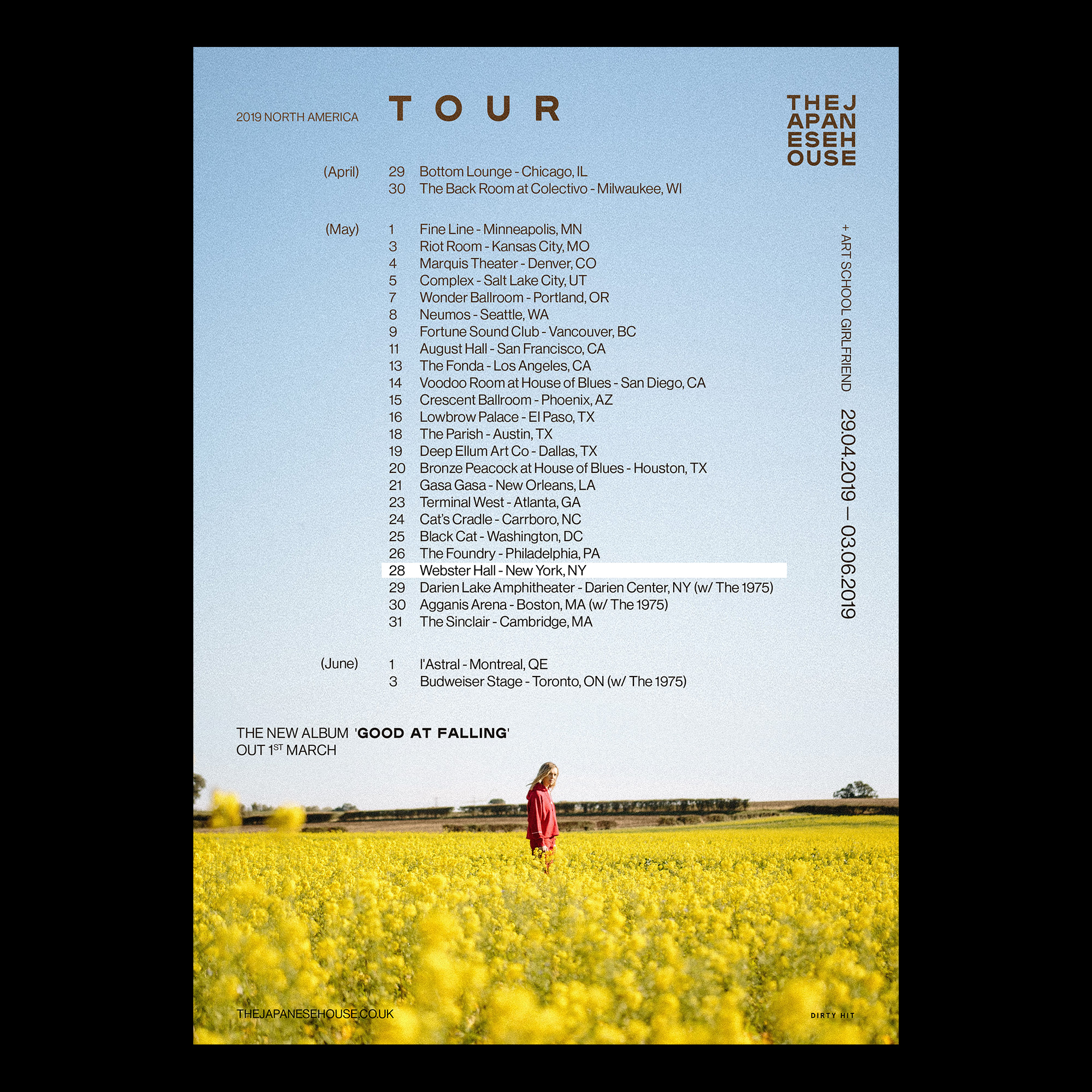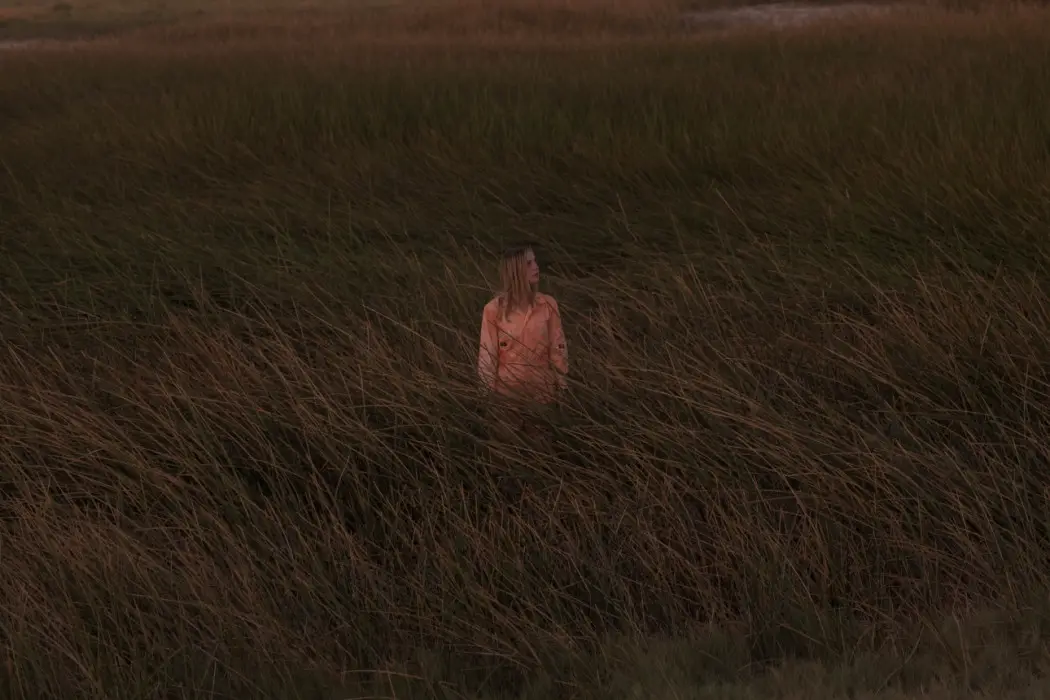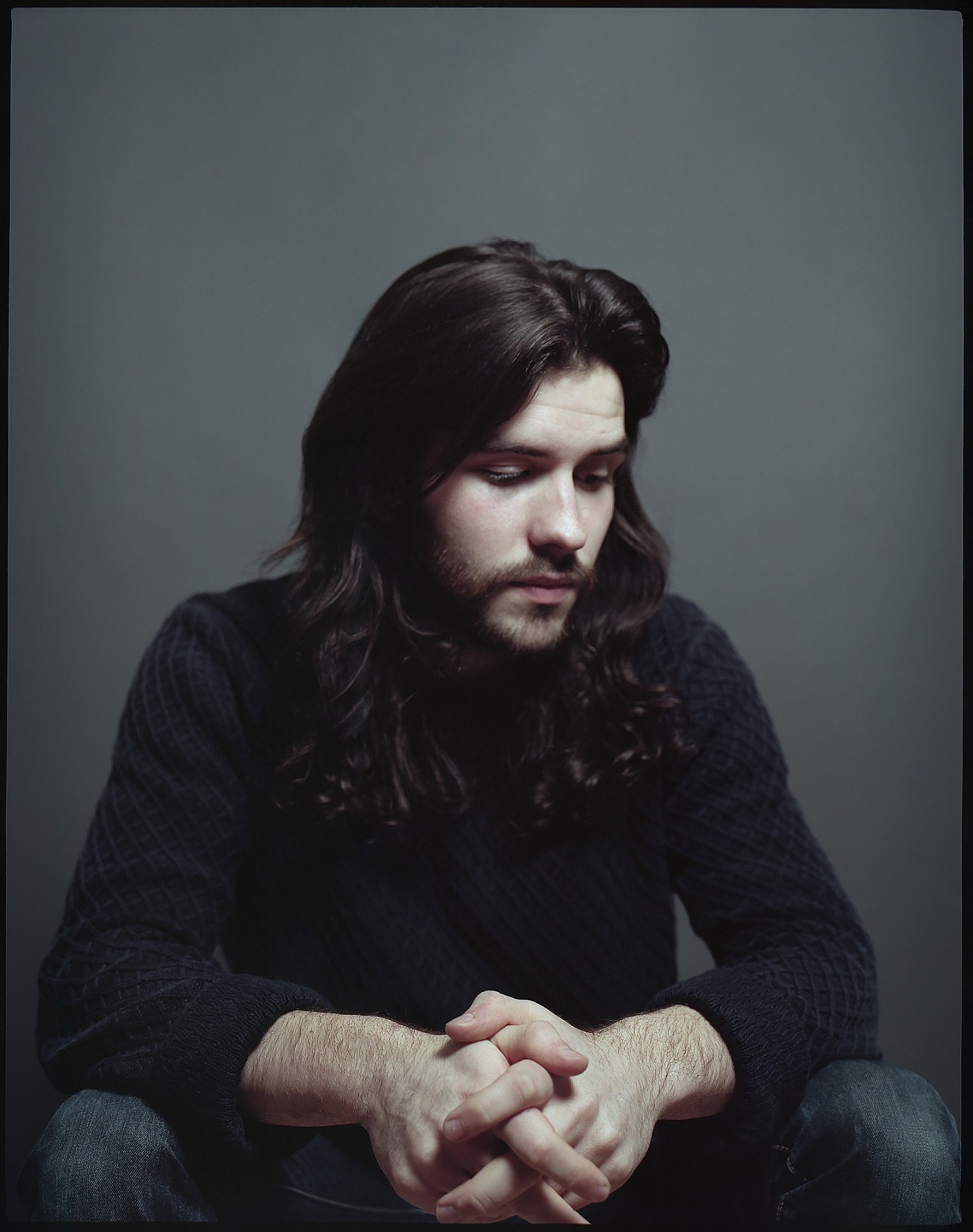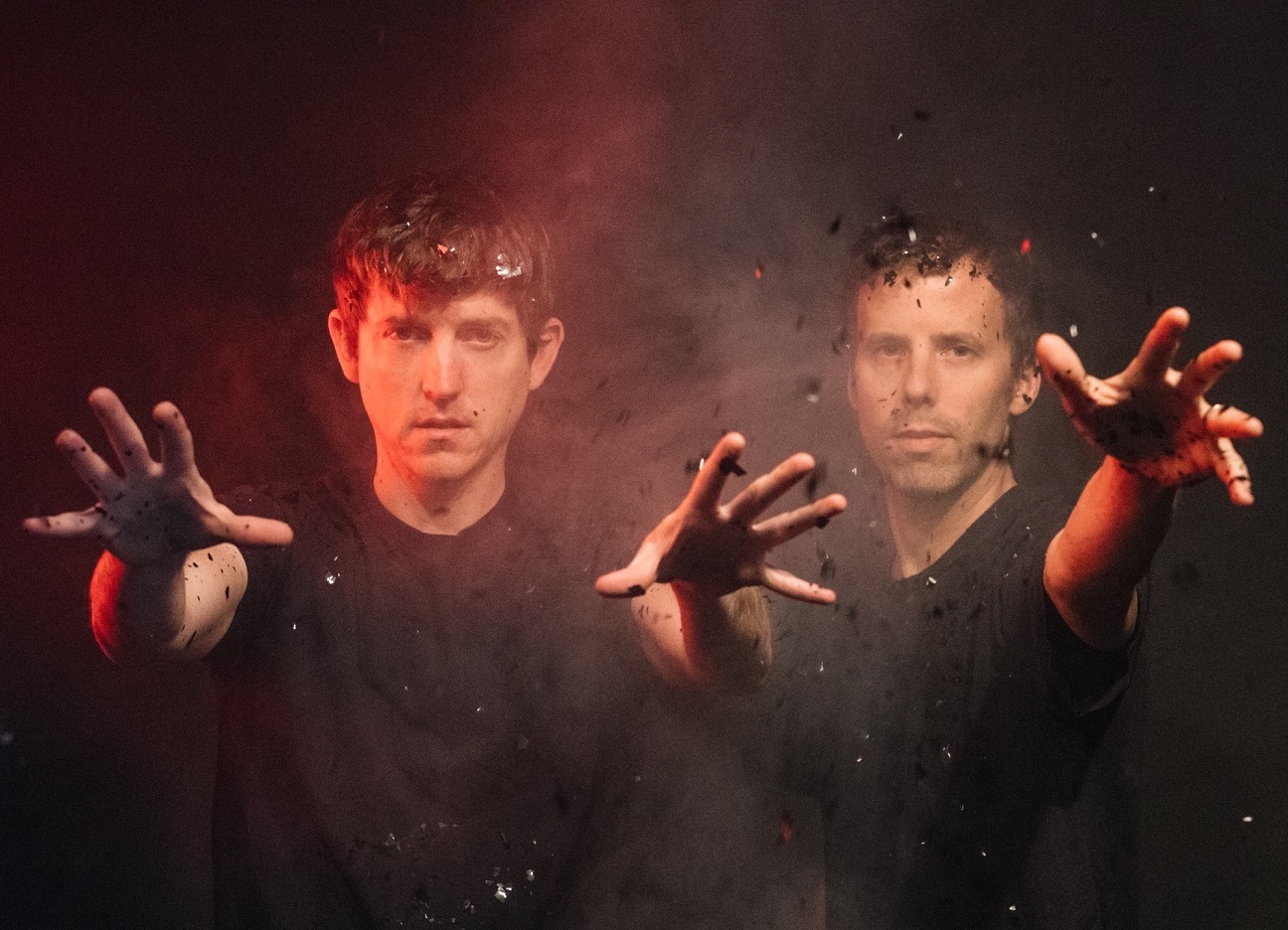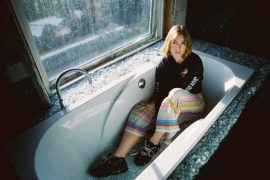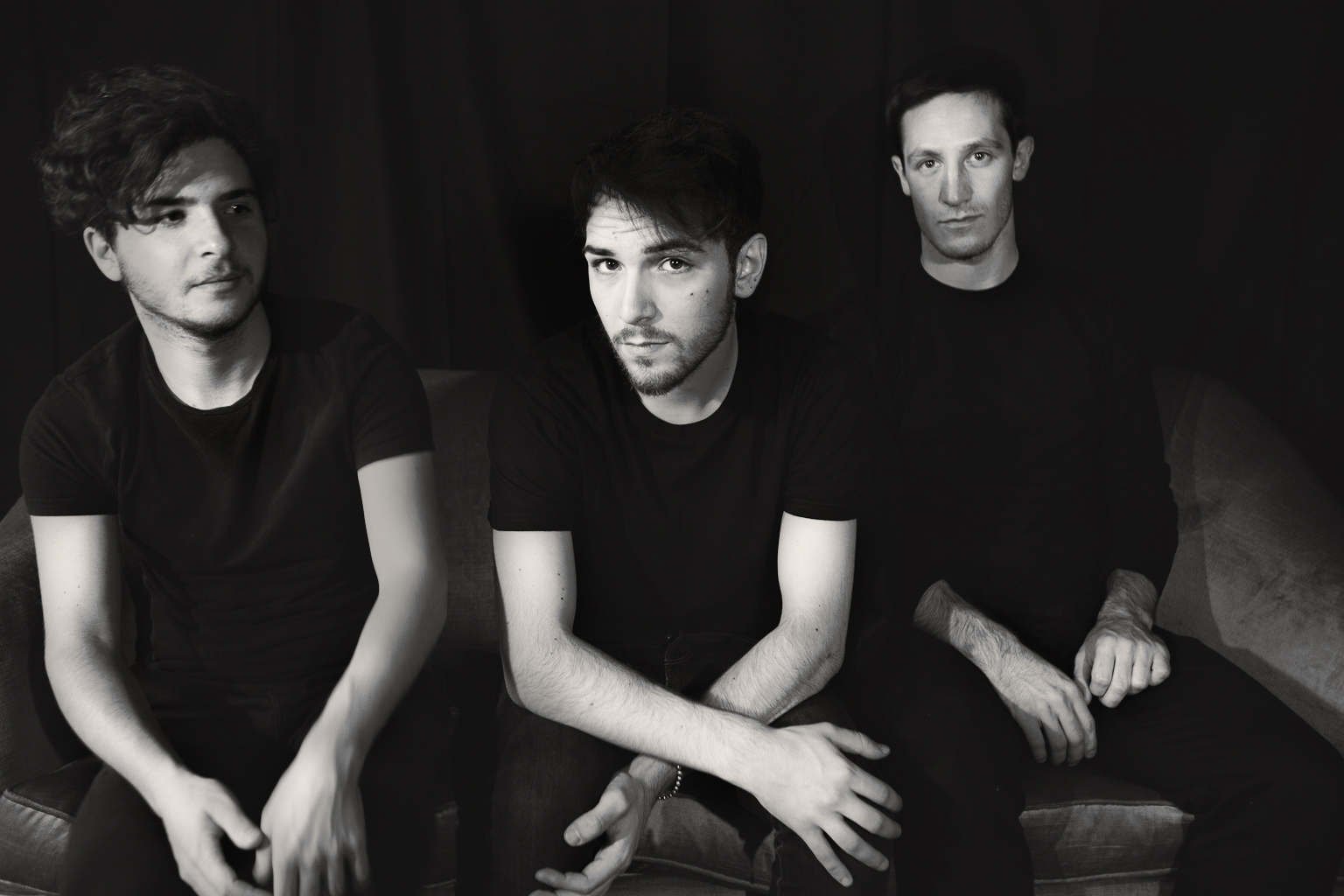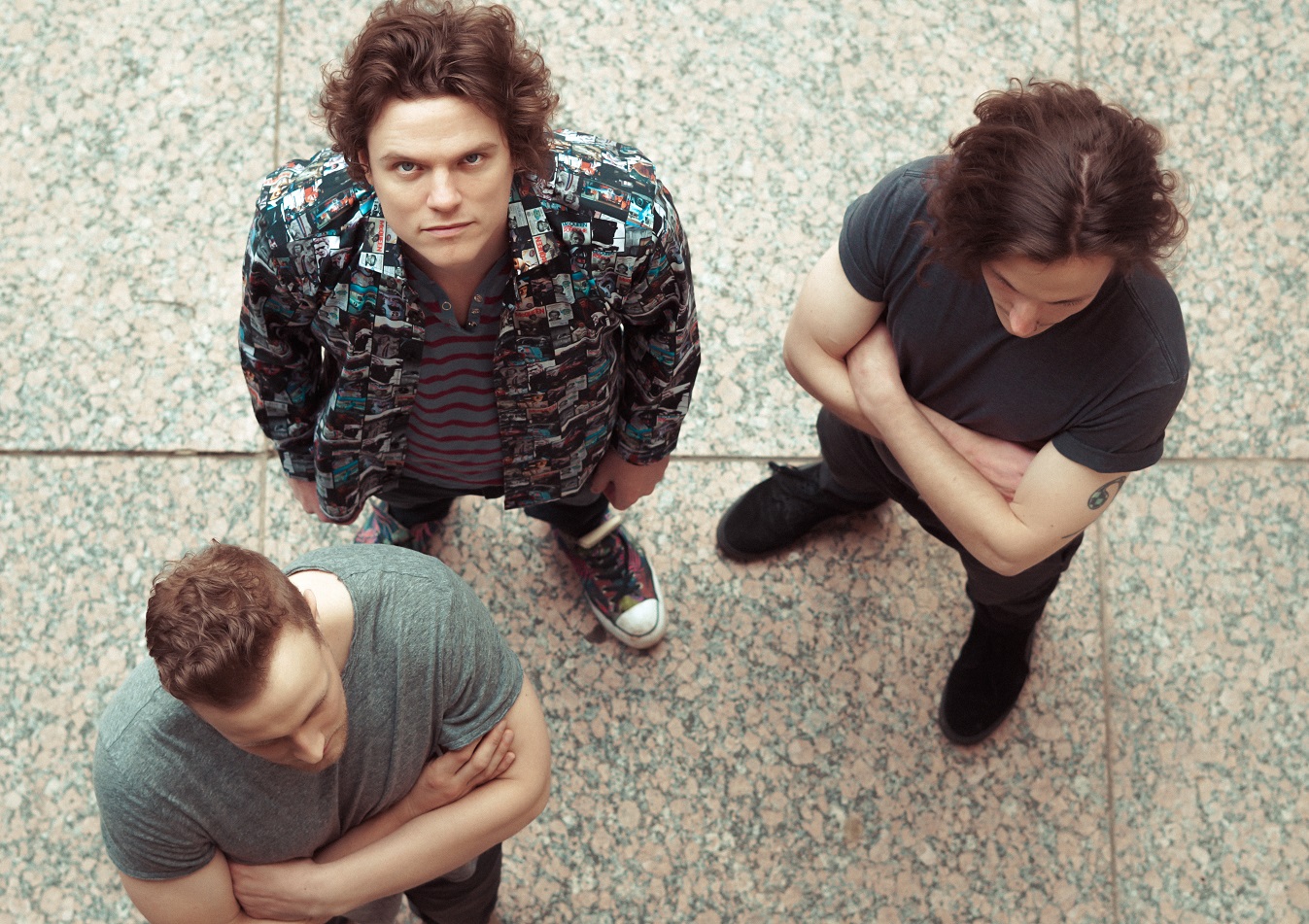Atwood Magazine catches up with The Japanese House to talk about her spectacular debut album, Good at Falling, the video game that inspired its title, and the healing power of dogs.
— —
When listening to an album we tend to look for a narrative. Something that helps us thread all songs together, know more about the artist’s life, connect it to our own. We’re all looking for a story. But Amber Bain wants you to know that with Good at Falling, her debut album released today under the moniker The Japanese House, she’s more interested in painting a picture. “When you’re painting a picture you don’t have to be chronological about it, you can just add details here and there and fill in the gaps,” she says about the album’s creation. Painting a picture gives you more freedom. Rather than being tethered by beginnings, middles, ends, character arcs, and the creation and resolution of a conflict, painting a picture allows you to freeze time and present life as you know it for a singular moment. It becomes part of a collection and someone’s history rather than being the history itself.
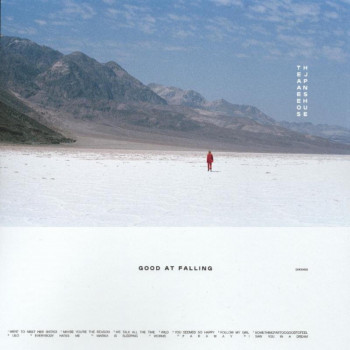
The picture Bain paints on Good at Falling is one of reckoning. As the album progresses, you hear her come to terms with different aspects of life: the increasingly painful breakdown of a long-term relationship, family trauma, the darker side of herself, the death of her first love, mental health, and trying to pick herself back up.
The result is an intimate, marvelous, and heart-wrenching image. One that begs you to pay attention to it and gets better every time you re-visit it. It’s meticulous and specific, but ambiguous and universal enough that it moulds itself to its audience’s life easily. A spectacular achievement, a perfect balance of light and darkness. “Maybe You’re the Reason,” “You Seemed so Happy,” and “Follow My Girl” are glowing bursts of energy, the brighter part of the album, made to dance to during live shows. Songs like “Wild,” “somethingfartoogoodtofeel,” and “Everybody Hates Me” lay in the shadows, introspective and at times painfully intimate. They flood Bain’s vocals in a reverb-filled sea of layered synthesizers and take their time setting the scene. “Marika is Sleeping” and “went to meet her (intro)” fall somewhere in between, completing the image.
Good at Falling has been a long time coming, with Bain releasing her first single “Still” in 2015 and four EPs between then and 2017. It’s an amount of time that is basically unheard of in music today, but patience was key in making the album. Listening to Good at Falling, it’s clear how every single song released by The Japanese House to this day led to the creation of the album. Hints of the darker and brooding Pools to Bathe In EP are spread throughout the record, the light of “Clean” added a new element to The Japanese House’s sonic identity, as does the faster pace of “Face Like Thunder” and the self-awareness of “Good side in.” The ambition of “Count to Nine” and “3/3” allowed for experimentation and boldness. “Saw You In a Dream” was so crucial that it was re-imagined and stripped back, closing the album with nostalgia and romance. They were all pieces of a puzzle that fit together to construct Good at Falling’s bigger picture.
Atwood Magazine caught up with Amber Bain ahead of the release of Good at Falling to talk about the creation of her spectacular debut.
‘Good at Falling’ – The Japanese House
INTERVIEW WITH THE JAPANESE HOUSE
Atwood Magazine: You released your first single, “Still”, in 2015 and now four years later you’re releasing your debut album. What’s the biggest difference between the Amber that released “Still” and the one that’s releasing good at falling?
Amber Bain: I guess I’m more comfortable with myself and I think I’m just more confident in a lot of ways. Physically more confident, I’m also more confident and able to talk about myself in my personal life and in my music, I’m more willing to experiment and also collaborate more. But I guess that’s just something that comes with age.
When you released “Lilo”, you released a statement that ended with “it proves that I’m good at falling”. Why did you name your debut album Good at Falling?
Amber Bain: I was playing a video game with my friend, he showed me this video game called Thomas Was Alone, and it’s really hard to explain but it’s basically about this square having this existential crisis. There’s a narrator throughout and at some point he says “Thomas was extremely good at falling”, and I think that’s really cool, powerful phrase. It kind of encapsulates everything I talk about on the record in a way, falling can mean so many things. Like falling flat on your face, literally (laughs), or falling in and out of love in relationships. Just fucking up. To be good at that, I guess it’s to be good at dealing with that, because it’s an inevitable thing that happens in life. You’re going to fall at some point. And when I named the album I was trying to get back up on my feet, emotionally, so it just struck a chord.
Did you name the album while writing it or after it was done?
Amber Bain: After it was done.
So did naming the album that give you a different idea of what the album would mean or the message it would send?
Amber Bain: I think I kind of knew the message, but when I heard that it made more sense. It just sort of clicked. Like I said in that description of “Lilo”, that description could work for a lot of the songs. It’s very much about failures and disasters that happen in your social life and in my brain, my mental health as well. It’s just about dealing with that.
Watch: “Lilo” – The Japanese House
The album has a good balance of very sunny, upbeat songs like “Follow my Girl” and “Maybe You’re the Reason” but also these darker moments of introspection like “wild” and “everybody hates me”. The songs blend into one another so we’re inclined to listen to the album in order as one whole thing, how did you decide the order of the songs and what journey do you want the listener to go through?
Amber Bain: I never really listen to album as a whole, I kind of listen to some songs, I don’t know the reason why I do that, I just always have. The tracklisting didn’t take very long, I just put it in an order and though “That makes sense, I’m not going to change it”. There was a bit of the randomness, but it kind of just makes sense, I can’t imagine it in a different order. Afterwards we worked to make them all blend into one another, and it was so easy to do, so I thought “That’s a sign, I did something right with the tracklisting (laughs)”. All those songs aren’t chronological, they aren’t really telling a story, it’s more painting a picture. Like a broader picture. I guess when you’re painting a picture you don’t have to be chronological about it, you can just add details here and there and fill in the gaps, and that’s what I was doing, I was just describing my life or the way I’m perceiving life at different times.
“Something’s wrong, stop” are the lyrics that open the record - why did you open the album with a warning?
Amber Bain: (laughs) Actually, I’ve never thought about that! That song is probably one of the newest songs on the record and I was thinking more sonically like it’s very different, it’s quite a bold song, it’s got a huge auto-tuned vocal and massive drums. (Pauses) I guess I am start with a warning, “something’s wrong, stop”, I hope people don’t take that literally and turn the album off (laughs) I don’t know! It makes sense to start introducing the production that I was playing with in the album. Even though it’s one of the least explicit songs lyrically, because it’s kind of vague what I’m talking about, but it’s a very intense subject matter where I’m talking about a trauma that happened in my family and how I actually had to go to Ibiza to sort some shit out. I think that comes across, it’s kind of clear in a way what I’m talking about, but it’s a bit of an introduction to let people into what was going on in my head at that time. All the songs are talking about something being wrong, the rule of narrative is that there’s something wrong and you need to fix it, or maybe not wrong but something’s going on. It’s interesting that you picked up on that, I’d never thought about that.
“Wild” is so beautiful and ironically self-aware. It’s also a really unexpected turn on the album. Can you tell me about the song, please?
Amber Bain: It’s the oldest song on the record, I wrote it when I was 17, way before “Still” and “Leon”, a long time ago. I used to feel like, well I still feel like this, but sometimes I behave in a way, I don’t know why I do this… In my head I obviously feel like I’m a good person and I want to be nice to people and I want to be kind and I really strive to be like that, but then I really have moments, which I guess a lot of people do, of just completely not being that person almost to the point where I feel like I’ve come out of my body and I’m literally watching myself be a monster. I used to have lots of moments like that. When you’re in a group of people that you’re extremely close to and all of a sudden you feel like not only they don’t know you at all, but you don’t know you at all, and you’re living this weird lie. That feeling is born out of this self-hatred I have, I feel a lot of self-hatred, but only at certain times and about certain things, I also feel a lot of self-love at other times. That song is about that side of myself, that I do not understand, that I think is a complete monster, and more recently I’ve learned to accept that side of myself in order to change it, and I do think that I’ve changed, but I’m always going to be this person who’s got this darker side. Were you saying there’s a sense of irony in there?
Yes.
Amber Bain: Yeah, when it says like “And all my friends like me, and I shine brightly, and I take it lightly, and I shrug it off” that’s obviously me being completely sarcastic. Falsely positive. I’m just being ironic like “Oh, I’m such a great person, on the outside I appear to be this great person but it’s all a lie”. And it’s quite sad that song, because I was 17 feeling all these horrible things about myself, but now I know that I am nice, and I know that my friends do like me. I don’t necessarily take a lot of things lightly but my friends definitely like me, and that’s something that I’ve had to learn over the last six years.
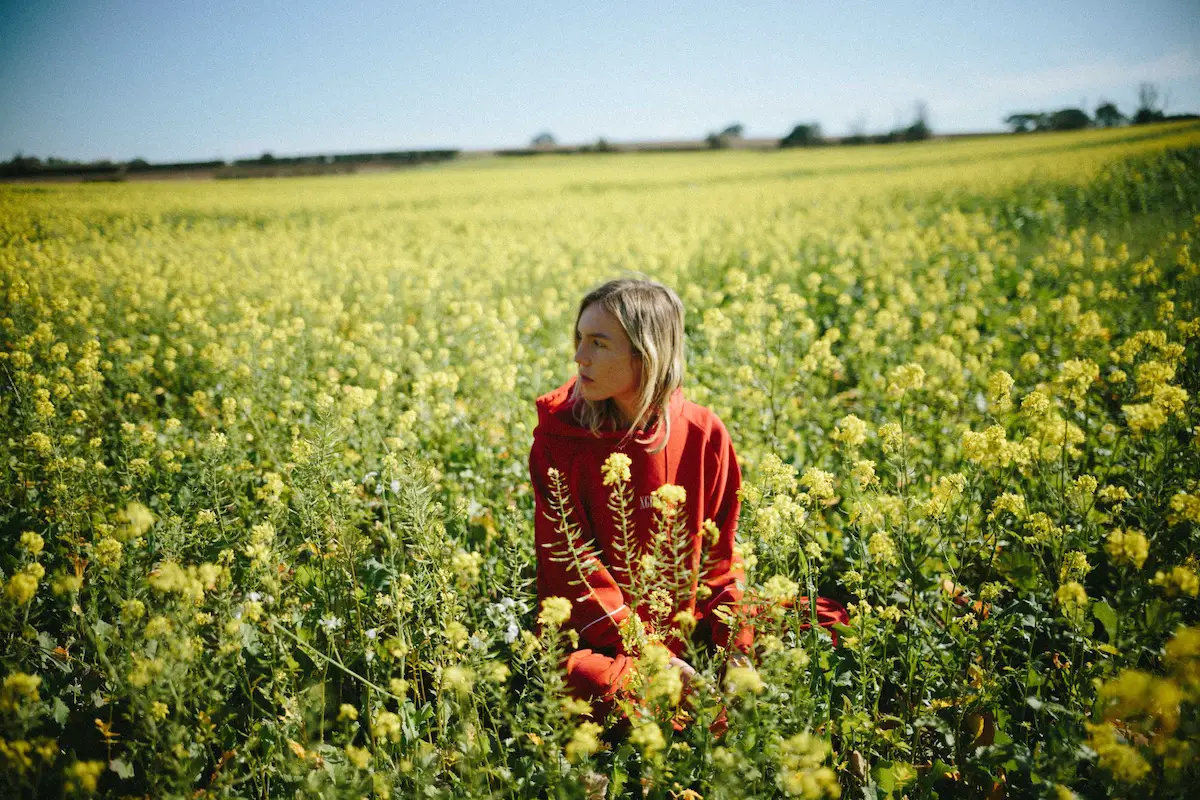
“Wild” is this song you’ve had for so long, does it feel weird writing about a relationship that happened and ended so recently?
Amber Bain: Yeah, it’s really weird writing about that relationship. It probably feels weird to Marika as well. Because obviously when I was writing the album I was mostly in the relationship with Marika, so it wasn’t in my head that I was going to be talking about my breakup surrounding this album. When I started writing that song it wasn’t even in my head that Marika and I would be together for 3 or 4 years or however long it was. I don’t really have a choice of what kind of songs I write, I can’t really decide that kind of stuff, I get to decide what I release. So when I’m writing a song I can’t really go “Right, okay, well maybe it will be weird if you write a song about that so maybe don’t write a song about that now”, I kind of just write whatever’s in my head. It’s weird but it’s not bad.
Did the breakup happen while you were writing the album?
Amber Bain: Towards the end of it, yeah.
So putting together the album after the breakup happened, did something change?
Amber Bain: Definitely, I was a complete wreck (laughs). I was an emotional wreck, I wanted to die. In a way it gave me an opportunity, I was looking at this thing that I’d nearly finished and I was like “Well, this is literally all I have left”. You’re reminded of the fact that, if that relationship didn’t end then – this is a really depressing thing to say – but whatever relationship you’re in, whether it’s family or platonic or a romantic relationship, all of those things are so feeble and fickle and fragile. And they’re probably not going to last, that’s how I feel at the moment. There’s obviously a strong bond you have with people but that bond never stays the same for too long, and the only real person you have is yourself. That’s how I was feeling when I was finishing it, in a way I felt so sad and so broken, but there’s two things that stopped me from jumping off a cliff, which was one, getting a dog, and two, having an album to finish (laughs). Because I didn’t have those things, I don’t know what… In a way, finishing this album kind of saved my life a bit If I didn’t have it to finish at that time, I don’t know what I would have done. It gave me something to work towards. That’s how much I care about this stuff, it really really made me realise that what I do is still so much a part of my happiness. It’s so important to me, maybe more than anything else.
And dogs. They’re saving the planet, one dog at a time.
Amber Bain: (laughs) True. And dogs, yeah.
In “Everybody Hates Me” there’s a lyric where you talk about Marika sleeping on the couch, and the song “Marika is sleeping” comes right after that. Is “Marika is sleeping” referring to like a moment within “Everybody Hates Me” that you’re just expanding upon on another song, and how do you write a song about what’s going on in someone’s head while they’re sleeping when you obviously don’t have access to that information?
Amber Bain: (laughs) Well, the title is “Marika is sleeping” because it was written when we were on a holiday and she was really, really ill. I took a whole day with her in the hotel room and she was like “Sorry I’m sleeping and being sick again and sleeping”, and I was sort of drifting in and out of sleep with her throughout the day. I woke up suddenly with this idea for a string arrangement in my head, and I quickly opened my laptop and programmed the strings and I had to save it, and then I was like “What am I going to call it?” and Marika was asleep so I just called it “Marika is sleeping”. Then I wrote the lyrics for it that night. When you’re a musician and you’re touring and in a relationship, it’s very hard at first to understand the see-saw nature of love. When you go away, you have to learn to be okay without that person otherwise every day would be hell. When you come back again you don’t necessarily love that person at that time because you had to learn not to otherwise it would’ve been really painful because you’d just been away for months on end. So I used to come back from tour and be like “I don’t know if I feel anything”. It was a song about me and now I feel like it’s almost a song about her. Originally I was talking to myself “you change your mind, you’re always changing”, but now it’s me singing it to her in a weird way. And “Everybody Hates Me”, I said it the other day in an interview, but when you’re with someone and they’re asleep, especially if you’re feeling really crap because you just trashed your body with alcohol, there’s nothing that makes you feel more alone than that. When they’re asleep you suddenly feel a separation that you didn’t feel at all, even though they’re right there in front of you, you realise that you’re separate, that you’re not the same person, and that you’re not really a team, that you’re alone basically.
It all just goes back to that idea that you’re ultimately alone.
Amber Bain: Yes.
I tell my friends that all the time if they’re worried about other people and what they think. You’re going to die alone, when you sleep, you sleep alone, fuck it, there’s no use in caring too much.
Amber Bain: Yeah!
Last time I interviewed you, before Swim Against the Tide EP came out, we talked about you going to Morocco and shooting the cover art for the EP and all your creative process. Now on Good at Falling it’s the first time you’re on the cover of the project for the first time. How did you decide that it was finally time for you to be in front of the camera and not behind it?
Amber Bain: I love the photos of the EPs and I still wanted to go with that theme, but then I thought that I wanted to be in it because I’m so much more in the songs themselves. I’m being so much more blatant in the way that I’m talking about myself in the songs that it is more personal and it is more intimate. Even though the photo is not intimate, I’m still there. And I think that’s kind of a good metaphor for the album, the way that I’m in this huge landscape in Death Valley – I guess in the songs like yes, it is vague at times, and there’s a lot of ground covered in the album, it’s not necessarily about one big thing, and you can probably relate the things that I’m talking about to anyone – but it’s this huge landscape and I’m still in it. It’s all of me in there.
— —
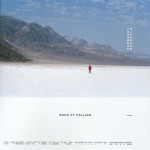
Connect with The Japanese House on
Facebook, Twitter, Instagram
Discover new music on Atwood Magazine
? © The Japanese House
:: The Japanese House Tour ::
